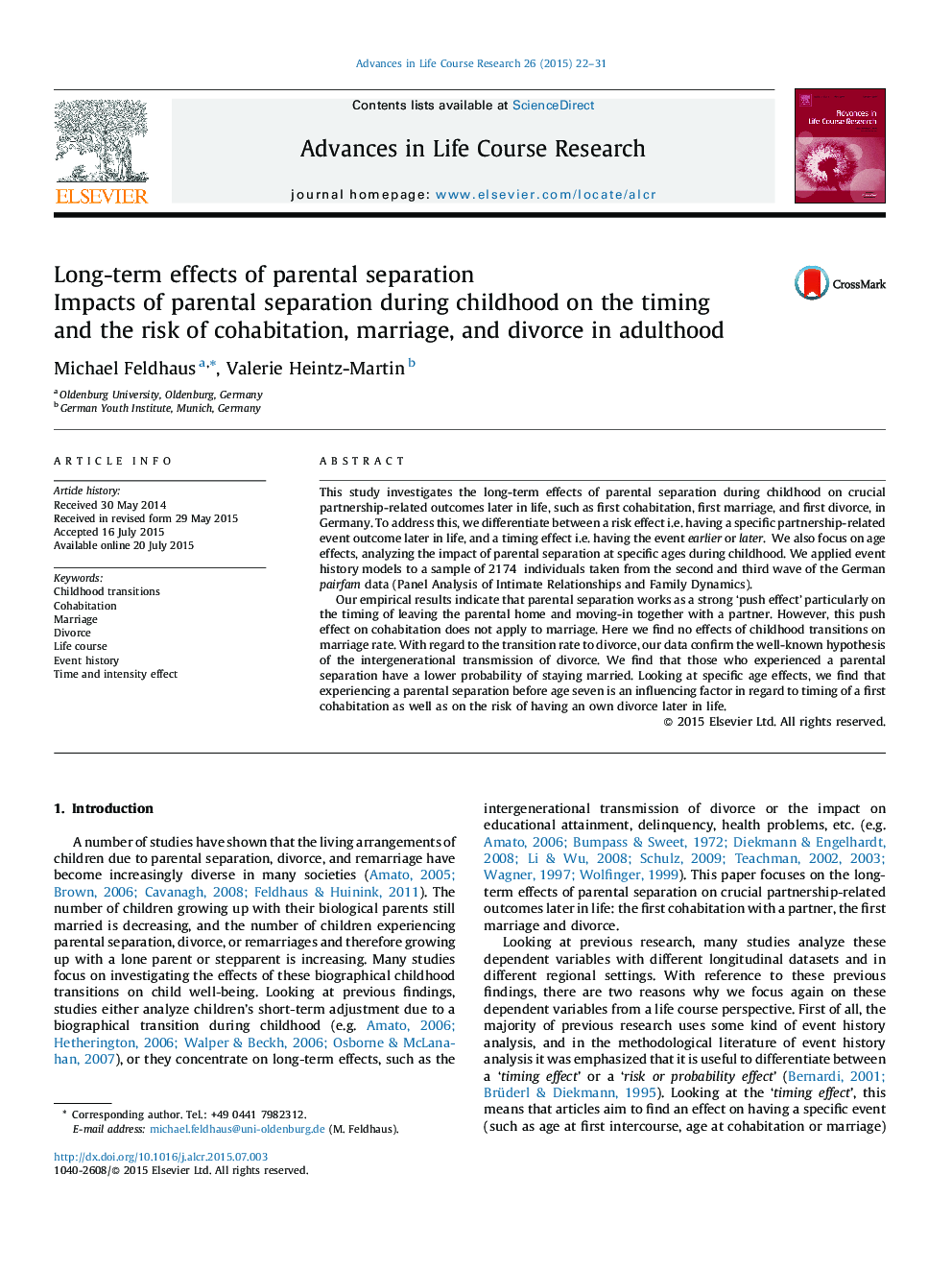| Article ID | Journal | Published Year | Pages | File Type |
|---|---|---|---|---|
| 6784869 | Advances in Life Course Research | 2015 | 10 Pages |
Abstract
Abstract
This study investigates the long-term effects of parental separation during childhood on crucial partnership-related outcomes later in life, such as first cohabitation, first marriage, and first divorce, in Germany. To address this, we differentiate between a risk effect i.e. having a specific partnership-related event outcome later in life, and a timing effect i.e. having the event earlier or later. We also focus on age effects, analyzing the impact of parental separation at specific ages during childhood. We applied event history models to a sample of 2174 individuals taken from the second and third wave of the German pairfam data (Panel Analysis of Intimate Relationships and Family Dynamics).
Our empirical results indicate that parental separation works as a strong ‘push effect’ particularly on the timing of leaving the parental home and moving-in together with a partner. However, this push effect on cohabitation does not apply to marriage. Here we find no effects of childhood transitions on marriage rate. With regard to the transition rate to divorce, our data confirm the well-known hypothesis of the intergenerational transmission of divorce. We find that those who experienced a parental separation have a lower probability of staying married. Looking at specific age effects, we find that experiencing a parental separation before age seven is an influencing factor in regard to timing of a first cohabitation as well as on the risk of having an own divorce later in life.
Related Topics
Physical Sciences and Engineering
Mathematics
Statistics and Probability
Authors
Michael Feldhaus, Valerie Heintz-Martin,
